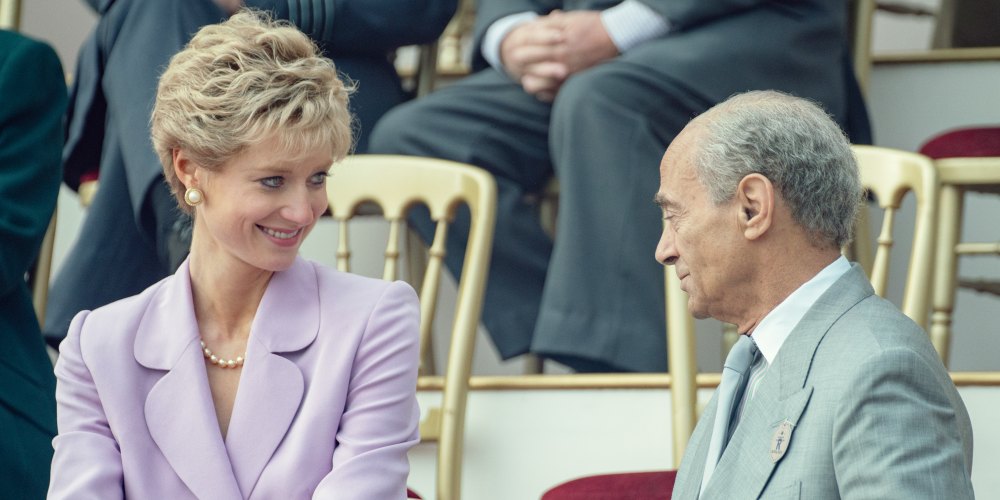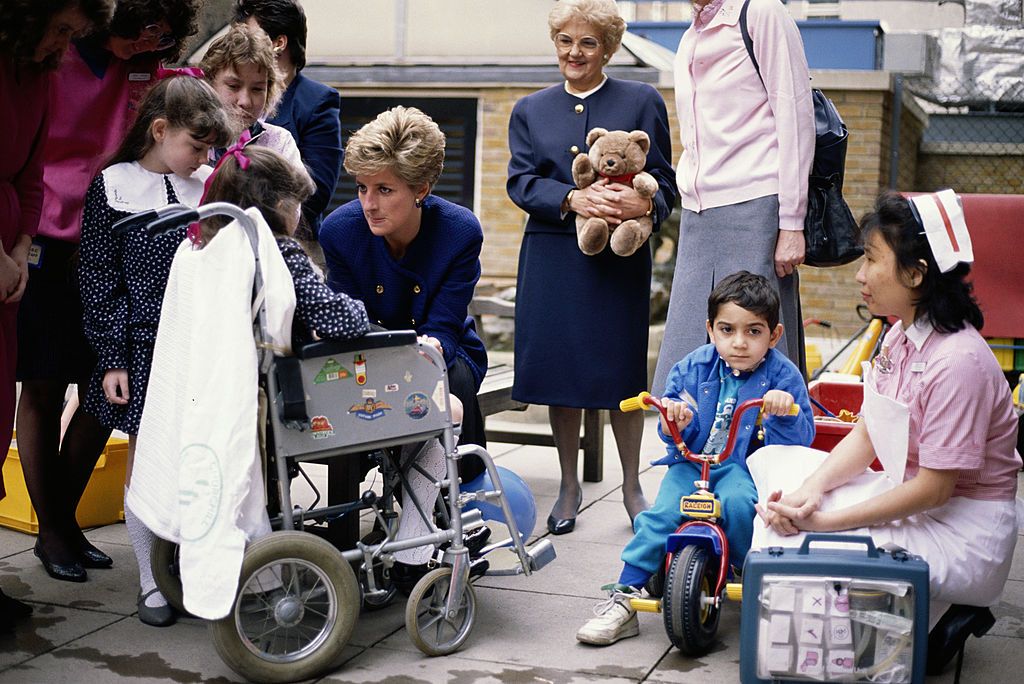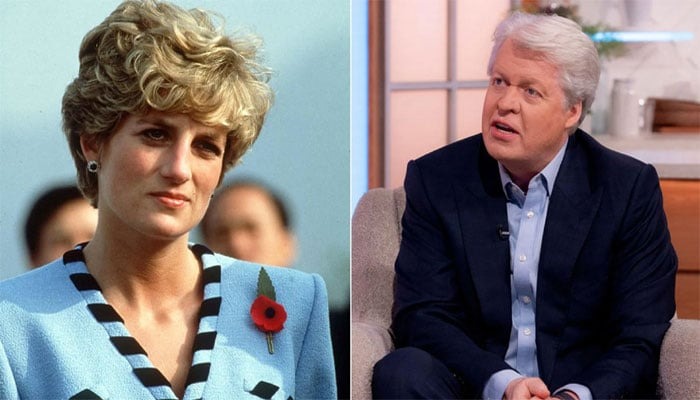Over two decades after the tragic death of Diana, Princess of Wales, her legacy continues to resonate with the public and within the royal institution. In a recent statement, Charles Spencer, 9th Earl Spencer, the younger brother of Diana, has once again brought attention to her enduring influence by sharing reflections on her life, her values, and the importance of historical truth.
Speaking from Althorp House, the Spencer family estate where Diana is buried, Lord Spencer emphasized his commitment to preserving his sister’s memory and advocating for an accurate understanding of her life and contributions. Though no specific individuals were mentioned, his words come at a time when public interest in royal history remains strong — especially in relation to Princess Diana’s role within the monarchy and modern British society.
A Legacy of Public Service and Compassion
Diana, Princess of Wales, is widely remembered for her humanitarian work, particularly in the fields of HIV/AIDS awareness, landmine eradication, and mental health advocacy. Her approach to public engagement — empathetic, informal, and deeply personal — helped transform the way the monarchy connected with people.
Her involvement in charitable causes redefined royal expectations, and her ability to highlight social issues with authenticity made her one of the most beloved members of the Royal Family in modern history.
Following her death in 1997, tributes from around the world acknowledged the transformative impact she had made. The UN, the Red Cross, and numerous NGOs praised her advocacy and called for continued action on the causes she supported.
Earl Spencer’s Role in Preserving Diana’s Memory
As Diana’s only brother, Charles Spencer has consistently spoken out in support of her legacy. His eulogy during her funeral at Westminster Abbey remains one of the most widely viewed and remembered moments in royal history.
Over the years, Earl Spencer has given interviews, published articles, and supported initiatives aimed at highlighting Diana’s humanitarian contributions. His comments often emphasize the importance of historical accuracy and the preservation of her values, particularly as new generations learn about her through documentaries, books, and academic work.
In a recent public statement, Lord Spencer reflected on the enduring global admiration for Diana’s integrity and compassion. He noted that while time has passed, the principles she embodied — kindness, empathy, and resilience — remain essential in both public life and private reflection.

Media Representation and Public Debate
Diana’s life continues to be a subject of widespread public interest, including in film and television portrayals such as The Crown and various documentaries. These dramatized accounts have sparked debate about how accurately they reflect historical events and the relationships within the Royal Family.
Earl Spencer has, in previous interviews, raised concerns about the use of creative license in dramatizations, stressing the importance of separating entertainment from factual history. He has encouraged viewers to seek information from credible historical sources, and to consider the real-world context in which events occurred.

The Role of Historical Memory in Royal Narrative
The British monarchy is an institution rooted in tradition and continuity. Over time, its public image has evolved in response to societal changes, generational shifts, and the personal experiences of its members. Within this evolving narrative, the legacy of Princess Diana remains a powerful reference point.
From charitable foundations to public memorials, Diana’s life continues to inspire acts of service, philanthropy, and community outreach. Her sons, Prince William, Prince of Wales, and Prince Harry, Duke of Sussex, have frequently spoken about their mother’s influence on their personal values and public responsibilities.
As royal historian Professor Kate Williams has noted in multiple academic analyses, Diana represents a “bridge between the traditional monarchy and modern public expectations,” particularly in how she modeled emotional openness and societal engagement.

Public Response to Commemorative Moments
Whenever Diana’s memory is publicly honored — whether through official commemorations, new biographies, or family reflections — the public response is overwhelmingly emotional and engaged. In recent years, events such as the unveiling of her statue in Kensington Palace Gardens (2021) have drawn attention across the globe and reinforced her status as an enduring cultural figure.
Social media platforms regularly trend with topics related to Diana, especially during anniversaries or key royal events. Public discourse often revisits her influence on mental health awareness, how she reshaped the expectations of royal women, and the impact of her legacy on current members of the Royal Family.
The ongoing respect for Diana is not just rooted in nostalgia, but in recognition of how her public life contributed to meaningful societal change — both within the UK and globally.

Buckingham Palace’s Position on Family Remembrance
Buckingham Palace traditionally maintains a non-intervention policy regarding personal reflections made by extended family members unless they pertain directly to official royal functions. As such, no official comment has been made in response to Earl Spencer’s latest remarks.
This approach aligns with the Palace’s broader communication strategy, which prioritizes stability, discretion, and respect for family privacy. It allows individual family members the space to express themselves without drawing the entire institution into public debate.
Diana’s Enduring Relevance in Modern Monarchy
As the Royal Family moves forward under the leadership of King Charles III, and as Prince William and Princess Catherine take on expanded roles, Diana’s influence remains present in both form and function.
Prince William has often referred to his mother’s values in his work with mental health charities and homelessness initiatives. Similarly, Prince Harry, through his Archewell Foundation, has cited Diana as a guiding inspiration for his commitment to community, compassion, and justice.
These acknowledgments demonstrate that Diana’s legacy is not confined to the past — it actively informs the future of the British monarchy.

Conclusion: A Legacy That Continues to Resonate
Earl Spencer’s recent reflections serve as a reminder that the legacy of Diana, Princess of Wales, is not only a matter of historical record but also of personal impact and public relevance. His continued efforts to preserve her story are part of a broader conversation about how history is remembered, interpreted, and honored.
Diana’s life — marked by service, resilience, and empathy — continues to inspire people around the world. As the Royal Family navigates new chapters in its long history, the memory of the “People’s Princess” remains a constant touchstone of compassion and connection.
Verified Sources:
- BBC News – Diana’s Legacy and Royal Family History
- Royal.uk – Official Royal Family Website
- UN Press – Princess Diana’s Humanitarian Work
- Kensington Palace – Diana Memorial Statue

